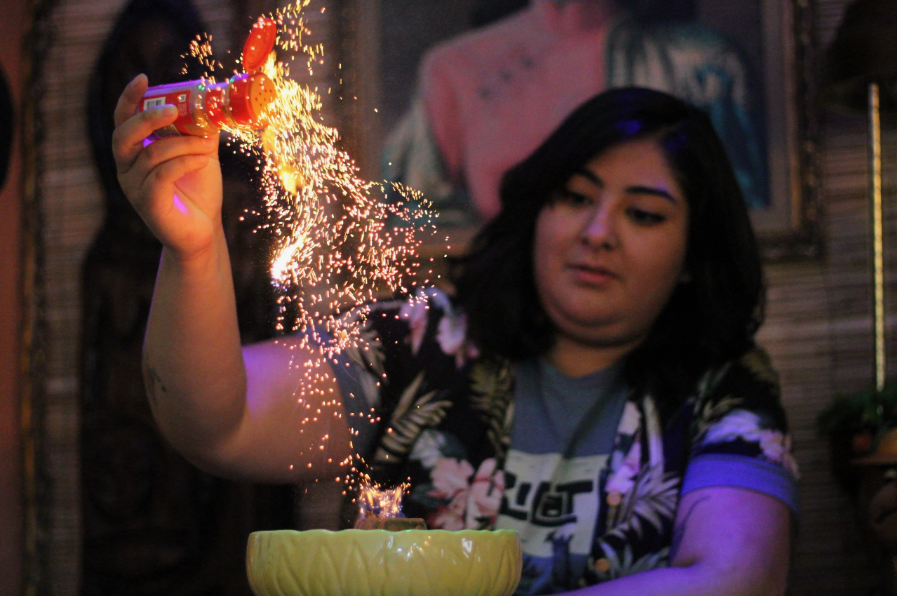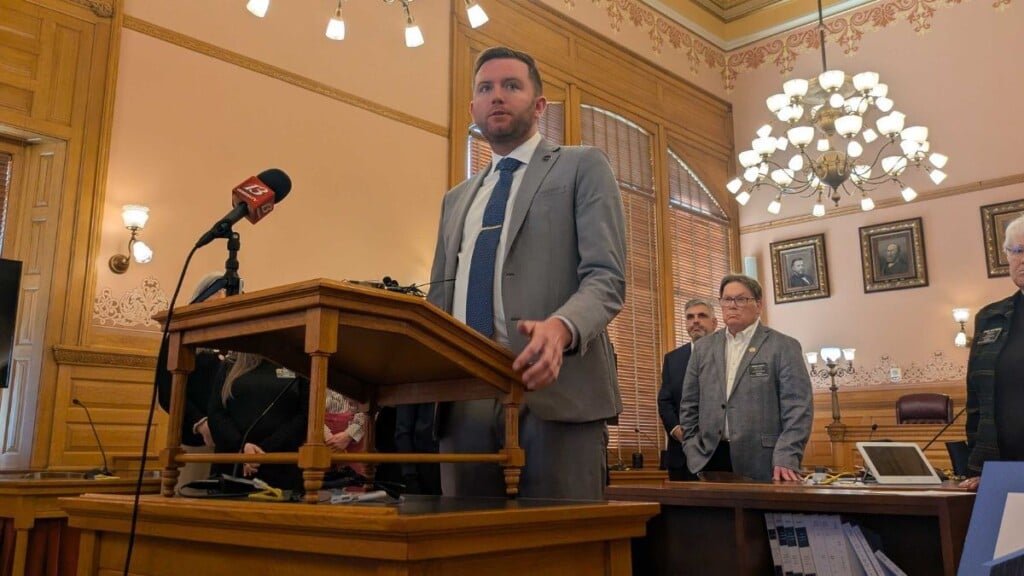Rob Harvilla’s 60 Songs That Explain the ’90s is earworm-centric Gen X storytelling, a pure love affair woven through sharp criticism
For the past several years, writer Rob Harvilla has been the host of the podcast 60 Songs That Explain the ’90s for The Ringer . The podcast covers “a chaotic and gritty and utterly magical time for music, a confounding barrage of genres and lifestyles and superstars, from grunge to hip-hop, from sumptuous R&B to rambunctious ska-punk, from Axl to Kurt to Missy to Santana to Tupac to Britney.”
Bringing in luminaries such as music writers like Simon Reynolds and Annie Zeleski and musicians Sophie B. Hawkins and Open Mike Eagle, Harvilla “reimagines all the earwormy, iconic hits Gen Xers pine for with vivid historical storytelling, sharp critical analysis, rampant loopiness, and wryly personal ruminations on the most bizarre, joyous, and inescapable songs from a decade we both regret entirely and miss desperately.”
In mid-November, Harvilla released a companion book to the podcast via Hatchette which–much like its namesake–contains far more than 60 songs. It’s hilarious, thoughtful, and a whole bunch of fun, loaded with some interesting concepts about nostalgia. Ahead of the release of 60 Songs That Explain the ’90s, we spoke with Harvilla by phone about the book, the apparent ’90s resurgence we now find ourselves in, and more.
The Pitch: After you’ve written 600,000 words plus on all of this, what is the driver that makes one write that many words? Is it easier to write about stuff that you listened to during your formative years than it is sometimes to write about new things or things from before that time?
Rob Harvilla: Yes. I do think that’s a huge part of it. What I’ve come to realize over 600,000 words in three years is just–the music that you loved when you were a teenager, you’ll never love anything that much again, right? That’s the purest love affair of your entire life, the music you loved in high school and in college That encompasses the ’90s for me and that explains why I was drawn to the ’90s in the first place and why I’m having so much trouble quitting the ’90s, even after a hundred plus songs and 600,000 plus words.
I do think it’s easier just because sometimes my connection to a song is more critical and analytical, but more often it’s more personal. It’s, I remember loving this song when I was a kid, or I remember just hearing this song and some weird mundane circumstance that really struck me. The personal and the formative years element of it, I think opens up a lot more opportunities.
I was listening to the new Drake record a couple of days ago and I was remembering, remembering that very recently, it would be my job to hit play on the new Drake record at 12:01am, the moment it dropped, and I’m trying to absorb an hour and a half long, 25-track Drake record and write a thousand words on it by morning.
This is a very different and for me, very ideal very preferable mode of thinking about music–to be able to luxuriate with it a little more and to have 30 years of some kind of experience with it to draw on.
For the podcast, especially, you’ve gotten some really fun people to discuss this stuff with. You’ve gotten Sophie B. Hawkins, you’ve gotten Amanda Shires, and you’ve gotten Rider Strong, who is one of the epitomes of ’90s sitcom culture. What have these various guests brought to the discussion that made you have a different opinion on some of these songs?
From the very beginning, I think this format just naturally emerged, that I would talk about a song at increasingly unnecessary lengths, but then I would bring in somebody else who had a totally different perspective on it. I just didn’t want this to be me prattling on the entire time and so when the show is just getting started, it was a lot of Ringer people and a lot of fellow critics, fellow podcasters, fellow authors, people who had written books women in hip hop or about women in country music or whatever.
That’s still the backbone of who the guests are, but as the show has gotten marginally more popular, like–Rider Strong was a wild one. I’m even trying to remember how that happened. I think somebody just sent him something at random and he reached out to me and that’s incredibly cool, to be able to talk to somebody who was some kind of teen or preteen idol in the ’90s. He can talk about what it was like in the ’90s versus what everyone pretends it was like in the ’90s now.
I always just wanted another perspective, and that’s often somebody who had a much more personal relationship with this artist, with this song in real time, somebody who was a little older than I was, somebody who was a little younger than I was. I’m always curious.
I talked to somebody for the Beastie Boys episode, and his first Beastie Boys record was Hello Nasty. It was somebody who didn’t grow up with it ingrained in her that “Fight for Your Right” was one thing and then Paul’s Boutique was this masterpiece and on and on. She’s working backwards from “Intergalactic,” and that’s a totally new way to think about the Beastie Boys who are this canonized.
Everybody’s written millions of words about them and they’re all wonderful, but just to get a new kind of perspective from somebody younger, somebody older, somebody closer to the artist, someone a little farther away with a little more distance–I just wanted some other perspective in there and it’s been really cool to get a lot of different people to provide that.
 Did any of those perspectives that you got from doing the show change or determine where you went in the book, because there are more songs on the podcast than there are in the book?
Did any of those perspectives that you got from doing the show change or determine where you went in the book, because there are more songs on the podcast than there are in the book?
That’s really interesting. It’s weird that it’s all happening simultaneously. The book, by and large, is excerpts from these scripts and I’m just trying to get the songs grouped together in new and interesting ways and interacting with each other in ways they wouldn’t ordinarily: put Pulp next to the Wu-Tang Clan and see what happens.
But yeah, it’s always gratifying and it always expands my horizons, my perspective on a song to talk to a guest. There’s no way that doesn’t seep into everything that I think and write about them afterwards. So yeah, absolutely. I’m trying to think of a concrete example of talking to somebody and then their perspective really feeding into the book.
You know, the Courtney Love of it all is very odd in that she reaches out to me. She offers–and this blew my mind–to talk about Nirvana. We talk about Nirvana, I’m simultaneously writing the Nirvana episode and writing the bit about Nirvana in the book and so, I certainly have her in my head and her perspective and the detachment that she brings and the really painful personal connection that she brings at the same time.
She really informed the way that I was thinking about Kurt and about that song and about that initial burst of fame and how he reacted to it. She was very influential on all of that.
As you’re making this podcast and as you’re writing this book, there are all of these other books coming out that you mention in yours–Leila Cobo’s Decoding “Despacito”: An Oral History of Latin Music, Aaron Carnes’ In Defense of Ska–all of which are just really excellent deep dives into very specific topics. How did that help?
Like anybody, I tried to read as widely as I can and listen to as many other podcasts as I can. I do gravitate towards specialists. Nobody knows more about women in country throughout history than Marissa Moss, Clover Hope’s book on female rappers, the ska book–I love all those deep dives and every episode that I do, what’s fun for me is I get to be in a new genre or a new micro-era every week. I try and seek out a formative foundational voice who knows way more about this topic than I do. That’s not hard to find, but yeah, that’s reading a book, that’s listening to somebody’s podcast series.
When it comes to grunge, Mark Arm’s oral history of grunge of Seattle was just wonderful and just all these characters, and it helps you sort of fill in the chronological discography of it all. You just jump from album to album, you get a sense of what things were happening simultaneously, how they felt, how they fed off each other.
It’s just really gratifying, basically every week, to have a new expert that hopefully I’m talking to. Certainly I’m listening to, reading everything that they’ve written and just letting them inform where this goes.
You also mentioned Dan Ozzi’s Sellout, which is like a lot of these books and your podcast: it’s not just speaking to the ’90s, specifically. It’s in context of what came before and what comes after and that is the thing that really makes it interesting to read all of this.
Yeah, absolutely. And Sellout is the great example because there’s no more ’90s concept than this idea of “selling out,” which meant so much to us at the time and people say now it doesn’t mean anything. It’s just mystifying to us, this idea that we begrudge any artist making money any way they can.
Partly, that’s the post-Napster music business. They don’t have a choice. But yeah, that book is just fascinating in the way that that shit just means everything to Green Day. It’s just an existential crisis for Green Day whether to sign to a major label, in this place where they came up and it’s so important to them. It’s their home.
Gilman is torn away from them, and they go on to sell X millions of records but like, Blink-182 come along a couple years later, and they “sell out,” but they don’t care. It doesn’t matter to them at all. It ruins Jawbreaker, this idea, this existential crisis, but by the early 2000s, it’s a completely different thing.
What fascinates me about that, too–I keep going back to this chart of the most-played on rock radio, from 2010 to 2020, and it’s all ’90s songs. It’s all early ’90s. It’s all Nirvana, Green Day, Alice in Chains, Pearl Jam. It’s wild to me that the alternative rock revolution that I just totally bought into when I was 16, that’s obviously now classic rock.
It’s 30 years old, but that is modern rock now. It’s somehow still contemporary. Dookie is somehow still a new album to people today in a weird way. Those songs are as ubiquitous in certain corners of the radio as they were in 1994. It just trips me out.
60 Songs That Explain the ’90s is out now from Hatchette.





